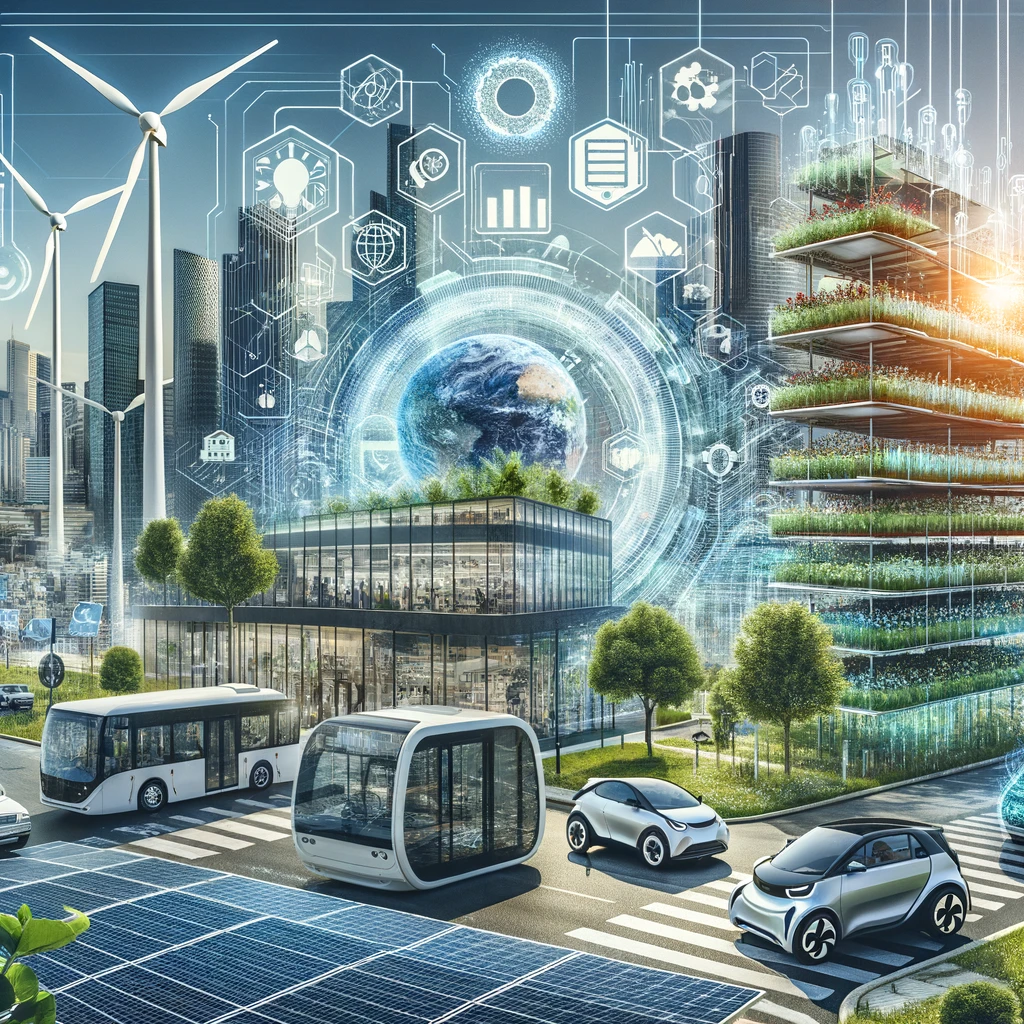In an era where climate change poses a significant threat to our planet, technology emerges as a beacon of hope. Innovations in sustainable technology are not just a trend; they are essential for the survival and prosperity of future generations. This article delves into the groundbreaking sustainable tech solutions that are shaping our response to climate change, highlighting their potential to create a more resilient and eco-friendly world.
The Emergence of Green Energy Technologies
Renewable energy sources, like solar and wind power, have become more accessible and cost-effective, offering a viable alternative to fossil fuels. Advancements in solar panel efficiency and wind turbine design are revolutionizing how we harness natural resources. Energy storage technologies, such as advanced batteries, are also pivotal, ensuring a consistent energy supply even when the sun doesn’t shine or the wind doesn’t blow.
Smart Cities and Eco-friendly Urban Planning
The concept of smart cities integrates technology into urban planning, aiming to optimize resource use and reduce emissions. IoT (Internet of Things) devices play a crucial role in monitoring and managing urban environments, from reducing traffic congestion to enhancing waste management. Green buildings, which use materials and designs that minimize environmental impact, are becoming increasingly prevalent in urban landscapes.
Innovative Transportation Solutions Electric vehicles (EVs) are at the forefront of transforming our transportation systems. With the advent of better battery technology and expanded charging infrastructure, EVs are becoming more accessible. Additionally, innovations in public transport, like electric buses and green fuels for aviation, are crucial in reducing the transportation sector’s carbon footprint.
Agricultural Technologies for a Sustainable Future Sustainable agriculture technologies, including precision farming and vertical farming, optimize resource use and increase crop yields while minimizing environmental impact. These technologies allow for efficient water usage, reduced pesticide use, and lower greenhouse gas emissions, supporting a more sustainable food production system.
The Role of AI and Big Data in Climate Action Artificial intelligence (AI) and big data are instrumental in climate change mitigation. AI algorithms can predict weather patterns, optimize energy consumption, and enhance climate modeling, providing valuable insights for policymakers and scientists. Big data analytics plays a key role in tracking and reducing emissions on a global scale.
Conclusion The intersection of technology and environmental sustainability offers a path forward in the fight against climate change. These sustainable tech solutions not only address immediate environmental concerns but also pave the way for a greener, more sustainable future. As we continue to innovate and implement these technologies, we move closer to a world where ecological balance and technological advancement go hand in hand.
Image Suggestion A collage showcasing various sustainable tech solutions for climate change: solar panels, wind turbines, a smart cityscape, an electric car, vertical farming, and a graphic representation of AI and big data analytics. This image encapsulates the diverse range of technologies contributing to a sustainable future.
